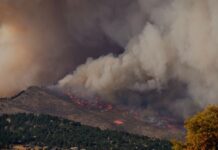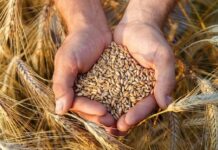A new report by the World Resources Institute (WRI) and the World Bank, with contributions from the African Development Bank (AfDB) shows that nature-based solutions (NBS) are helping to build resilience in Sub-Saharan Africa – one of the world’s most climate-vulnerable regions.
Growing Resilience: Unlocking the Potential of Nature-Based Solutions for Climate Resilience in Sub-Saharan Africa analyses nearly 300 projects over the past decade, identifying the keys to successful implementation, barriers to be overcome, and strategies to scale up NBS through the promotion of green, resilient development.
The report finds a steady increase in the adoption of NBS, with the number of new projects growing by an average of 15% annually between 2012 and 2021. These projects aim to combat risks of flooding, drought, and extreme heat through the protection and restoration of forests, wetlands, floodplains and coral reefs, often in combination with traditional infrastructure. In addition to strengthening climate resilience, these projects also support job creation, biodiversity enhancement and social equity.
While interest in NBS is growing, the report finds that more investment is needed. Between 2012 and 2021, funding for NBS projects in Sub-Saharan Africa increased by 23% annually and raised more than $12 billion. However, Africa still faces a $100 billion annual gap in its infrastructure financing.
While the report finds that NBS projects are growing, relatively few projects have been implemented in cities, despite their potential to address urban challenges. In recognition of these financial challenges, and to complement the NBS investment preparation efforts of the World Bank and AfDB, WRI has launched the Green-Grey Infrastructure Accelerator, an initiative to support 11 cities across Sub-Saharan Africa to integrate NBS with traditional ‘grey’ infrastructure. The initiative will provide technical, policy and finance support.








